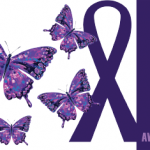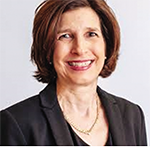Radium Springs, a community of roughly 2,000 individuals, mostly farm workers, many indigent, was in dire need of providers of any kind. “I thought that this opportunity was awesome,” says Tellez. “Less than 30% of my patients are insured, and their access to specialists is near to none. When I heard that there’s a rheumatologist that I can present my patient’s cases to I thought, ‘Let’s go for it.’ ”
Online Resources
- For more information on participating in or starting an ECHO program, go to: http://echo.unm.edu.
- For more information on the ARHP Advanced Rheumatology Course and to register, go to www.rheumatology.org/education.
Prior to ECHO, there was little help that Tellez was willing to offer to patients with rheumatologic disease. “I was very scared to start a lot of these medications. Methotrexate [is] one of the staples of treatment, [but] I was very uncomfortable starting it, or even managing patients that came to me already on it. So, now, [having completed the training] I’ve become quite a bit more comfortable.”
Despite the time commitment required for ECHO training, which Tellez admits he underestimated, the rewards have been well worth it. “There’s this patient I see now,” he says with obvious pride, “She’d been in Mexico for some time and was off of her methotrexate—she was getting a dose here and there—so when I presented her case, I proposed restarting her on a pretty hefty dose. After my presentation, Dr. Bankhurst said, ‘Hey, you’ve come quite a way. [The proposed treatment] is very appropriate.’ So, that really stands out in my mind.”
Fellow ECHO graduate Raymond Galley, PA-C, of La Familia Medical Center in Santa Fe, has enjoyed similar success. He is particularly impressed with the way the training is approached. “The whole point of Project ECHO is to broadcast the specialist perspective as it applies to those in primary care,” he says, and this is reinforced by participant interaction. “The collegial atmosphere, and the knowledge of other providers—I like that,” Galley says. “It’s also interesting to hear that others have the same issues that I do as far as delivering healthcare to people without a lot of resources.”
At first thought, Santa Fe, with a population 143,000, may not seem to qualify as underserved, but Galley points out that the city and surrounding area has many low-income residents and high numbers of uninsured immigrants. There is a great need for rheumatology expertise amongst this population. Galley, a recent ECHO graduate, is forthright in his opinion: “With this training, I’ve already changed patients’ lives.”
The Middle of Nowhere and Beyond
Could ECHO work elsewhere? Without a doubt, says Galley. “I hope it happens all over the country, because there’s this growing medical problem of patients who can’t afford care,” or can’t get to the healthcare provider. For them, he says, “ECHO hits that target.” the rheumatologist



